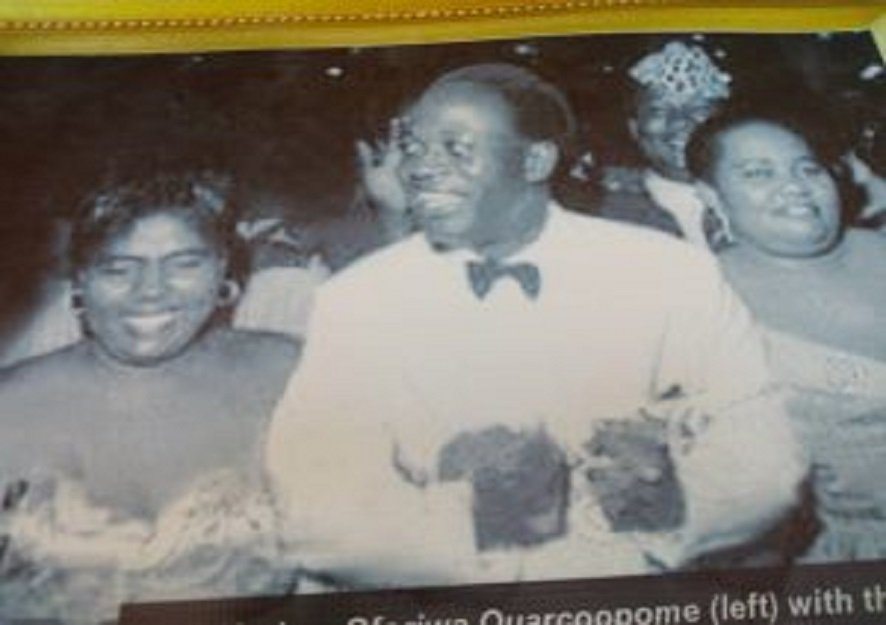A quick think through the history of Ghana’s struggle for independence and it will be very hard to think of a woman who shared the limelight with the likes of Dr Kwame Nkrumah and the other members of the Big Six who fought to make March 6, 1957, a historical day for Ghana and Sub-Saharan Africa.
This is not to say that there were no women who supported the fight for independence. Perhaps their stories have been kept in the dark for several years or they did not hold so-called top positions to have their names permanently arced in the story of Ghana’s independence.
Whatever be the case, they did exist and one of them was Agnes Oforiwa Tagoe-Quarcoopome, a revered market woman who supported Kwame Nkrumah and contributed to Ghana’s independence.

By the 1940s, Agnes Oforiwa Tagoe-Quarcoopome had become one of Ghana’s most important traders and market women who
Okaishie, which were the country’s major trading centres located in Accra, after entering the buying and selling business between 1921 and 1929 due to financial problems that could not see her continue her education despite being a very intelligent student.
Aside trading, Madam Agnes was a devoted Christian and activist who was firmly in support of the fight for independence and especially very supportive of Kwame Nkrumah after he formed CPP in 1949, a few months after resigning from the UGCC.
Agnes Oforiwa Tagoe-Quarcoopome and Kwame Nkrumah became close friends when he arrived in Ghana to take the position of General Secretary for UGCC. The two became close friends when Nkrumah had to stay with her for a short while when he arrived from the UK.
In 1949, after the establishment of CPP, it was Madam Agnes who single-handedly gained the market women’s support for Kwame Nkrumah and during his campaign, she got the Makola Market women to finance his activities. Later, she met with them on several occasions to explain Nkrumah’s ideas and plans for Ghana through his party after gaining independence.
Madam Agnes also organised several meetings in the market places for Nkrumah to meet with and speak to the market women and the masses. Through her, CPP was greatly financed by several market women as well.

While supporting Nkrumah, Madam Agnes also worked hard as a trader and became the first woman to open a bank account with Standard Bank of West Africa (SBWA) which is now Standard Chartered Bank on the advice of the expatriate Sales Manager of the United Africa Company (UAC). Through her, the bank gained the trust of several other market women and businessmen who later opened accounts with the bank.
She also became an important member of trade union groups and was an intergral reason why international trade between Britain and Ghana was happening.
In 1958, Agnes was awarded a travelling scholarship thanks to her hard work, dedication and honesty to the United Africa Company (UAC), a British company which principally traded in West Africa. She became the first Ghanaian woman trader to visit the UAC head offices in the UK, Netherlands and Holland.
Madam Agnes took advantage of her travel opportunity and purchased a wide variety of products in huge quantities which she brought down to Ghana aside her main product being textiles.
Together with the market women, she continued to fund the CPP and support the then President Kwame Nkrumah. In 1964, she built a very expensive home in Kokomemle which was fully furnished and airconditioned and rented by Nkrumah’s government to be the official residence of Russian officials until the 1966 coup d’
Soon after Nkrumah’s overthrow, Madam Agnes was taken into illegal custody by orders of Lieutenant Arthur. In the middle of the night, she was forced out of her home by m
After the execution of Lieutenant Arthur in 1967, Madam Agnes was released by Lieutenant General Joseph Arthur Ankrah and went back to her businessed.
By the 1970s, Madam Agnes became very wealthy and bought several properties in London which she rented out.
There are no known records of whether she kept in close contact with Nkrumah until he passed away. But for her immense contribution as a woman to the independence of Ghana, her story is worth the research and celebration.
Her son, Gerhardt Haldane-Lutterodt would grow to become the
Chief Director at the Ministry of Trade and Industry under the then Rawlings government. She was born on May 27, 1913.










